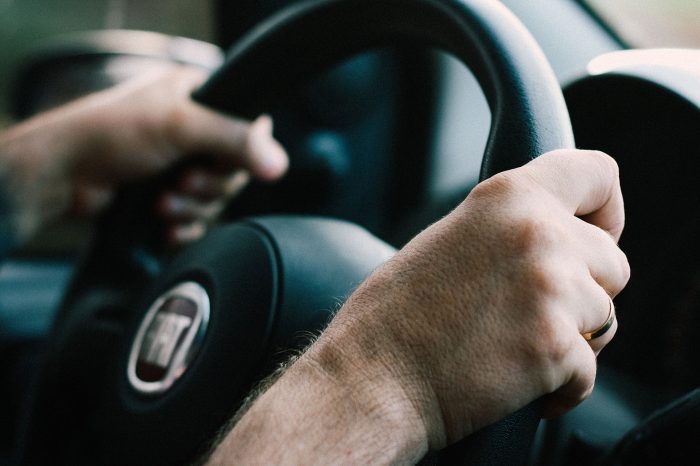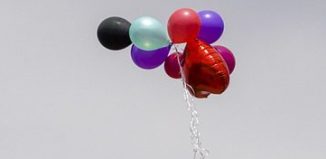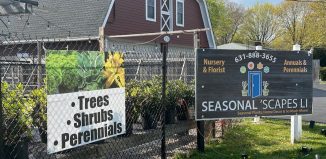D. None of the Above: Close call on the highway could have been something much worse
By Daniel Dunaief

You don’t have to look hard to see them alongside the road. They aren’t even always on the sharpest curves or the steepest hills.
There, along the median or over there, by the right side of the road, are the homemade crucifixes, the flowers, the stuffed animals and the personal effects of people who never made it wherever they were going, their lives ending on or near asphalt as other vehicles collided with theirs.
My family recently took a road trip, where we easily could have become another statistic, and our family or friends could have just as easily been visiting the spot where it ended for one, two, three or all four of us.
I was driving during a recent weekend, excited by the open road and eager to remove the family from the neighborhood patterns that have defined our lives for well over a year.
My wife navigated, checked her email, exchanged texts with friends, and regularly asked if I wanted her to drive, if I needed a drink, or if I was hungry.
Our son was napping behind me, his head tilted back and to the left. Our daughter was immersed in virtual interactions with her friends, head down, a Mona Lisa smile plastered on her face.
With my peripheral vision, I traced the flow of the taller and shorter trees that passed by, the familiarity of the Texas, Indiana, Ohio and California license plates on nearby cars and trucks, and the click, click, click of the road that churned beneath our wheels.
Up ahead, the driver of one of the thousands of SUVs that dot the American landscape hit his brakes. My wife instantly saw it and closed her eyes. Unlike me, she typically hits her brakes as soon as she sees the red lights at the back of the car in front of her.
I immediately take my foot off the accelerator, where it hovers over the brake. As we rapidly approached the car in front of us, I applied the brake with some force, coming to an almost complete stop just feet before reaching the bumper.
I exhaled in relief, while immediately hitting the hazards. I wanted the cars behind me to know I wasn’t merely touching my brakes, but that I, and all the other cars around me, were stopping.
For a moment, I chatted with my wife. I have no idea what she or I was saying, when I noticed a truck coming towards at an incredible rate of speed.
“Hold on! This isn’t good!” I shouted, waking my son and drawing my daughter away from her phone.
I reflexively tapped my accelerator and drove my car directly towards the nearly stopped SUV on my right side. The truck, meanwhile, dove into the thin shoulder.
As it flew by, the truck somehow missed us completely. The car next to me honked in frustration, as the driver, who must have moved to her right, glared. I wanted to tell her that a truck might have crushed our family if the driver and I hadn’t each made last second adjustments.
Her lane kept moving, and she likely didn’t give my sudden maneuver another thought. With my hands in a vice grip on the wheel and my breathing rapid, I stared at the truck in front of me. I wasn’t sure whether I would have liked to punch or hug the driver, who didn’t notice me slowing down, see my hazard lights or leave himself enough room to stop. At the same time, though, he — and it could have been a woman, because I never saw the driver — turned onto the small shoulder, finding just enough space to squeeze past me without destroying my car, my family or my life.
For the next several minutes, I struggled to drive, as the image of the speeding truck with nowhere to go in my rear view mirror replayed itself in my head.
“Are you okay? Do you need me to drive?” my wife asked anxiously.
My family and I were okay. We weren’t a part of a sad story that ended on an American highway. Skid marks left on the road weren’t a marker for the final seconds of our lives.
We are grateful for the combination of factors that turned a close call into a near miss. Perhaps this happened for a reason beyond giving us more opportunities to extend the journeys of our lives. Perhaps one of the purposes is to provide a warning to everyone else to remain vigilant, to brake early and to stay sharp and focused on the roads.







